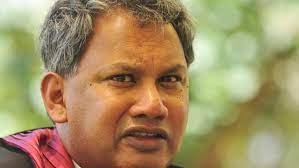Justice Darryl Rangiah is a judge of the Federal Court of Australia who recently gained attention for his ruling in a high-profile employment law case. He presided over the matter involving journalist Antoinette Lattouf, who was dismissed by a national broadcaster in December 2023. The case raised important questions about freedom of speech, political opinion, and legal protections for employees under Australia’s Fair Work Act.
Justice Rangiah’s decision found that Lattouf’s dismissal was unlawful because it was partly due to her political opinions. Specifically, the court ruled that her termination was connected to her criticism of the Israeli military operation in Gaza, which she expressed by resharing a Human Rights Watch statement on social media. This ruling marked a significant interpretation of section 772(1) of the Fair Work Act, which protects workers from adverse actions based on political beliefs.
The case began when Lattouf, a media professional with extensive experience, was hired on a short-term contract to host a morning radio program. She started her role on December 18, 2023, and the very next day shared a post that alleged the Israeli military was using starvation as a weapon in Gaza. Shortly afterward, she was told she would not be needed for the remaining days of her assignment. Lattouf challenged this decision legally, claiming that her dismissal was linked to her political views and ethnic background, and that the broadcaster failed to follow proper termination procedures outlined in its enterprise agreement.
The broadcaster, on the other hand, argued that her short-term contract had simply ended and denied that she had been dismissed. They also rejected the claims that race or political opinion influenced the decision. However, Justice Rangiah found that political opinion was indeed a factor. He further noted that Lattouf had not been told to avoid commentary on the Gaza conflict and that the broadcaster’s Head of Radio, Oliver Taylor, was aware of her social media posts when the decision to end her contract was made.
The Federal Court awarded Lattouf $70,000 in compensation for non-economic loss, acknowledging the distress, hurt, and humiliation she suffered due to the unlawful dismissal. The court emphasized that this amount was based on the impact on her personal wellbeing and reputation rather than lost earnings. While the court dismissed claims related to racial discrimination, the ruling reinforced legal protections for employees expressing political beliefs, even in temporary roles.
Justice Rangiah’s ruling has broader implications for freedom of expression in the media industry and beyond. It highlights the complex balance between an employer’s interests and an employee’s right to political expression, especially when personal views are shared on social media. The case also draws attention to the responsibilities of publicly funded organisations to respect legal rights, regardless of contract length.
Legal experts have noted that this decision could set a precedent for other journalists and workers in Australia, particularly those under short-term or casual contracts. It underscores the need for clear policies on social media conduct and the expression of political opinions in sensitive contexts. The case has sparked public debate about the limits of personal speech for media professionals and the protections afforded by employment law.
Though Justice Rangiah’s career details are not widely publicized, his work on this case demonstrates his role in shaping important legal interpretations within Australia’s federal judicial system. His ruling reflects a commitment to upholding workers’ rights under the Fair Work Act and clarifies how political beliefs should be treated in employment decisions.
The legal battle was costly, with the broadcaster reportedly spending over $1 million in legal fees throughout the proceedings. This highlights the high stakes involved in cases where employment rights, political expression, and media freedom intersect.
Justice Rangiah’s decision serves as a clear message to employers, particularly in public media, to carefully consider the legal protections surrounding political opinion and employee rights. It also reinforces the importance of fair and transparent termination procedures as outlined in enterprise agreements and relevant laws.
By ruling in favor of Antoinette Lattouf, Justice Rangiah has contributed to ongoing discussions about freedom of speech and workplace fairness in Australia. His interpretation of the Fair Work Act offers guidance for future cases and underlines the legal boundaries employers must respect when addressing employees’ political views.







